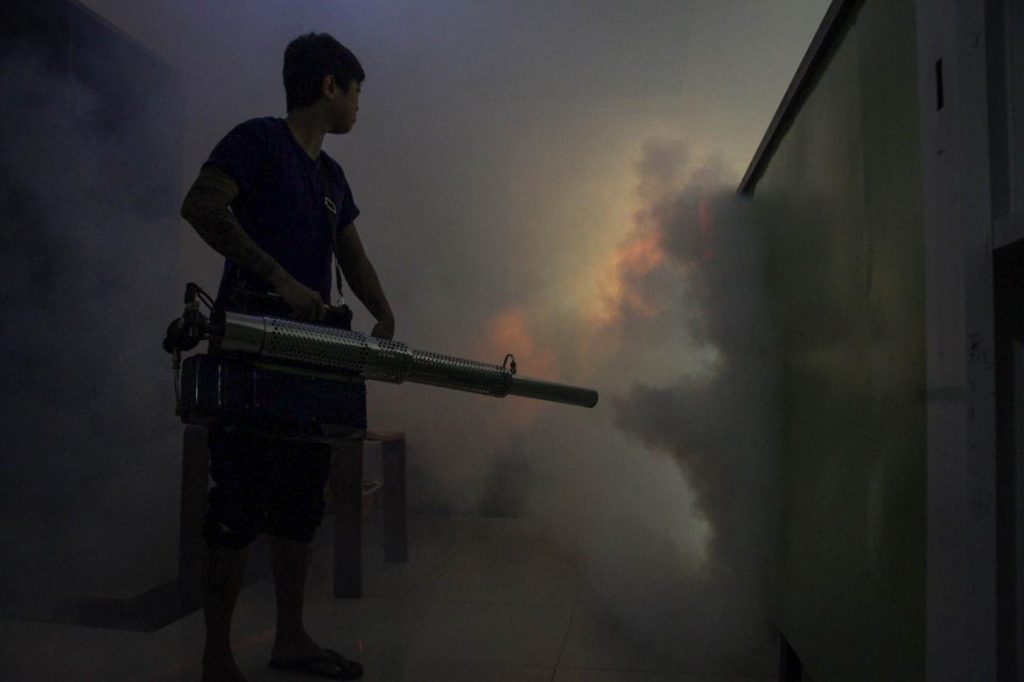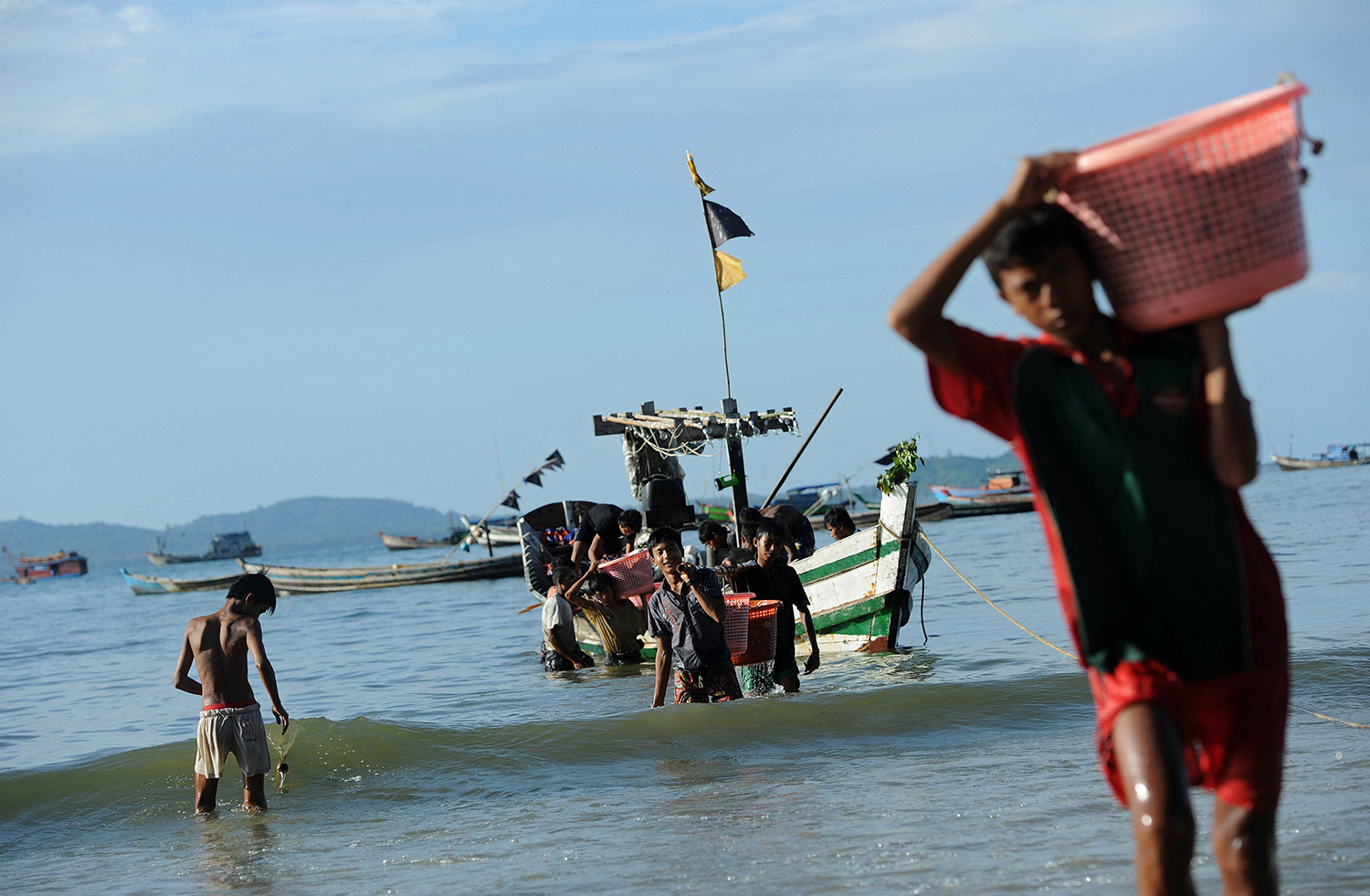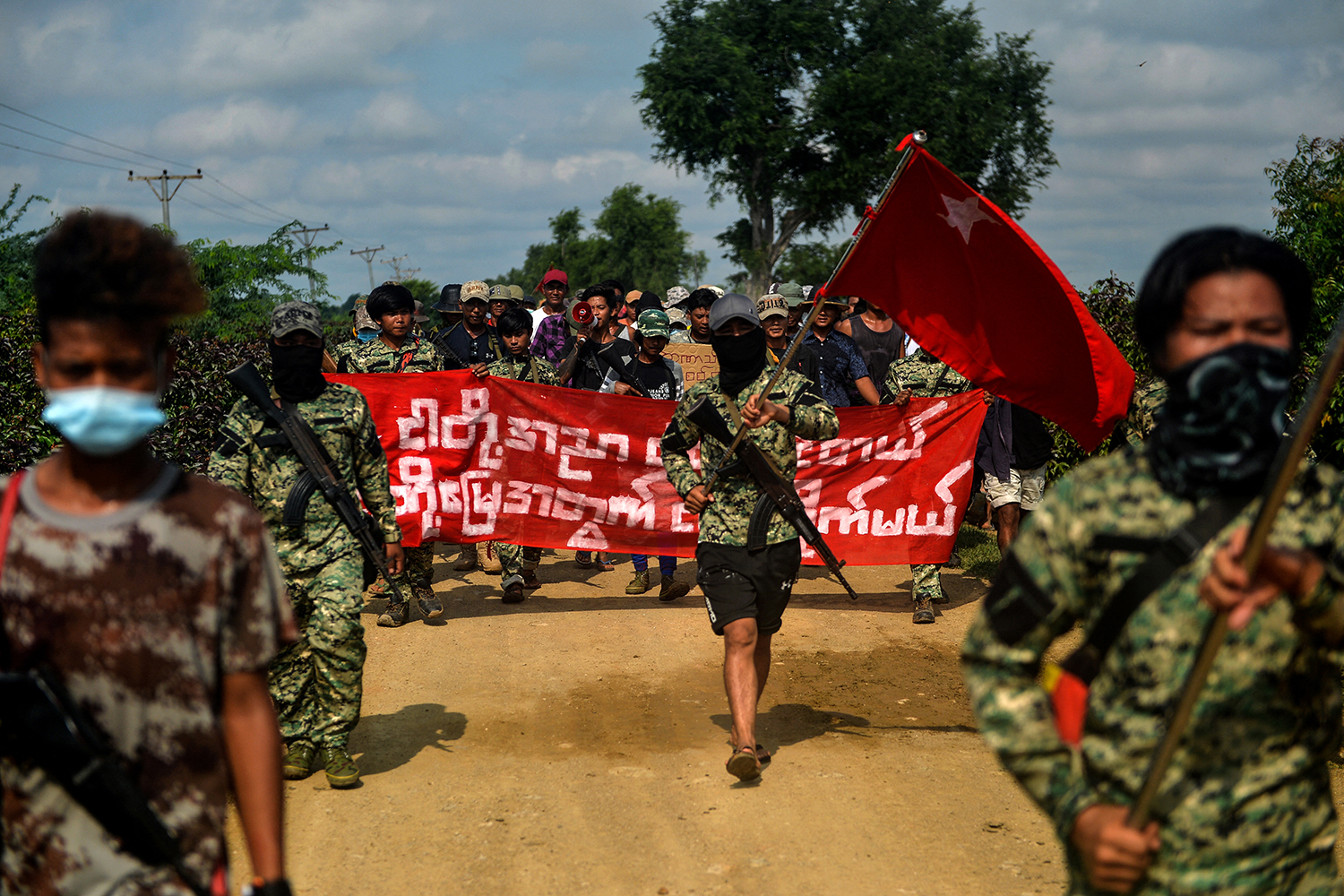By HEIN KO SOE | FRONTIER
YANGON — Health authorities in Yangon have been carrying out Zika prevention efforts following the discovery of the country’s first case of the mosquito-borne virus.
No new cases of Zika have been uncovered since state media reported on October 27 that a pregnant foreigner had been diagnosed with the virus, the Yangon Region Public Health Department said.
“We are watching for further cases and taking preventative measures in the area where the first case was discovered,” said department deputy head Daw Khin Nang Mon.
The department began spraying Sanchaung Township, where the infected woman previously lived, immediately after the case was diagnosed. These anti-Zika activities continued through to the end of October.
Support more independent journalism like this. Sign up to be a Frontier member.
Khin Nang Mon said that one major challenge in responding to Zika is that only one in five carriers exhibit symptoms. This makes it difficult for health authorities to track the spread of the virus, she said.
According to the World Health Organization, Zika was first identified in a monkey in Uganda in 1947. During the 1970s and ’80s it spread from Africa to Asia, but until 2007 only 14 cases had been recorded in humans.
In 2015, an outbreak was reported in Brazil and since then it has spread to North and South America, the Pacific and Southeast Asia, with thousands of human cases reported. While the virus normally results in only a mild fever, in pregnant women it can be transmitted to fetuses and cause birth defects.
In Southeast Asia, Singapore and Thailand have been the most affected countries, with more than 800 cases.







